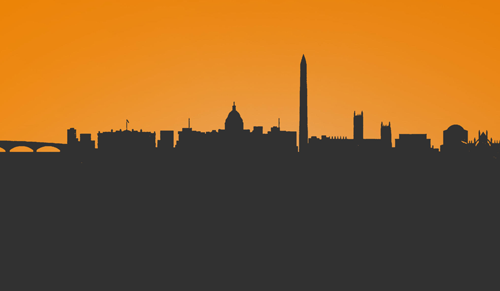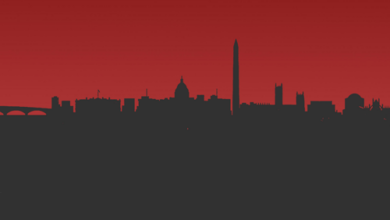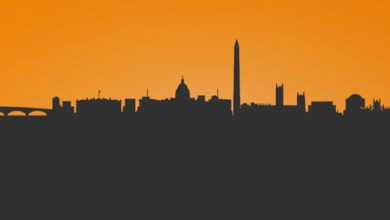
Persist to stand against hate.
Persist to stand against misogyny.
Persist to press forward — for justice and equality.
We persist to interrupt.
We’re scaling back over the next few weeks, giving you a smash up of the Quick Take and the news. We’ll be on leave starting August 16 through Labor Day. We plan to be back on September 13, hopefully with a new look and name. Onto the news….
Tense ties: The European Commission has a new leader, Ursula von der Leyen, who hasn’t always had the warmest words for Trump. (Who can blame her?) Trump is already on the record saying that the EU is a “foe.” How will the EC-US relationship pan out? Nahal Toosi explores. (Politico)
Boris or bust! In the United Kingdom, the Tory party will elect a new leader on Tuesday. Odds favor Boris Johnson, a vociferous Brexiteer, who has said that the UK needs to exit the EU on October 31. On Thursday, Britain’s parliament passed an amendment that would make that harder, by preventing parliament from being suspended in order to push a no-deal Brexit through. What will Brexit look like? Aleks Berditchevskaia and Kathy Peach discuss. (The Conversation)
Puerto Rico protests: Thousands have taken to the streets in San Juan, Puerto Rico. They are calling for Governor Ricardo Rosselló to step down, following leaked messages in which the governor makes sexist and offensive comments. Gina Martinez has what you need to know. (Time)
Free trade, in Africa: As the US and China go at each other in a trade war, the 54 countries in Africa have banded together to up their collective trade game. The African Continental Free Trade Agreement (AfCFTA) went from concept to reality on July 7 when many of the countries signed on, at the African Union’s summit in Niamey, Niger. The agreement, valued to be worth $3.4 trillion, will go into effect in July 2020. Ghana will host the body’s headquarters. Amanka Anju shared her insights on Twitter, in which she asks important questions about infrastructure. Grace Shao on what you should know about Africa’s 54-country wide trade agreement. (CNBC)
Somalia: Hodan Nalayeh grew up in Canada, but like many children of immigrants, dreamt of reclaiming her heritage. She returned to her native Somalia to be a journalist. Anemona Hartocollis and Megan Specia on her life and death in a terrorist attack last weekend. (NYT)
To the moon! As the US celebrated the 50th anniversary of the Apollo moon landing, India made plans to launch a spacecraft for the south side of the moon on July 14. There was a glitch and it didn’t happen. It’s not clear when the Chandrayaan-2 mission will be reset. (Chandrayaan is “moon craft” in Sanskrit). If and when it is, it will be a first — no one has gone to the south pole of the moon. Get excited all you space nerds, Elizabeth Howell explains the science behind the Chandrayaan-2. (Space.com)
Not a drop to drink: The monsoon rains, in India, which usually run from June to September, came 10 days late this year, and with 30 percent less precipitation. That has sparked a water crisis in the country. Reservoirs in Chennai, an Indian city located on the southeastern coast, have run dry. Those in Bangalore, India’s “Silicon Valley,” are not far behind. But is it climate change or poor infrastructure? Arati Kumar-Rao explores. (National Geographic)
Another battlefront: As if things weren’t touchy enough between the US and China. The US approved a $2.2 billion arms sales to Taiwan. China wasted NO time calling for its cancellation, citing the “One China” policy. That’s recognizing that there is no separate country called Taiwan, only one China. Kristin Huang has more on this controversy — and possible sanctions on US companies. (South China Morning Post)
Can he win? Another thing to watch in Taiwan, a challenge to President Tsai Ing-wen. The country’s opposition held a primary last weekend, in which Han Kuo-yu, a populist mayor, won. He advocates for closer ties with China. (So guess who Beijing is rooting for….) General elections will be held in January. This is one to watch, because it can get tense — and have the potential to draw the US in. Chiu-Ti Jansen tells us more about Han and his chances. (South China Morning Post)
Another trade war? On July 1, Japan announced restrictions of chemical exports to Korea. These chemicals are key in the manufacturing of microchips. “National security” concerns say leaders in Tokyo. Ask experts, and they’ll tell you it’s actually about World War II. (Because we can’t get over the past). Eun-Young Jeong looks at the spat — and the potential for it to backfire on Japan. (WSJ)
Watch: Lies: The Taliban promised to protect women. Women don’t believe them. Cora Engelbrecht talked to women in Afghanistan. (NYT)
Listen: Yes, she can: Can a woman win the White House? Elmira sat down with Anne-Marie Slaughter, in a nuanced and interesting discussion that touches on what is expected of women and the exceptions made for men. A worthy listen. (Project Syndicate)


